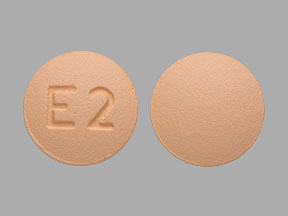
Eletriptan Coupons & Savings Card – Discount Prices from $25.64
Generic for: Relpax
My prescription
Edit
40MG, Eletriptan (12 Tablets)
Select pharmacy

CVS
$25.64
COUPON PRICE
Walmart
$32.70
COUPON PRICE
Walgreens
$34.32
COUPON PRICE
Albertsons
$37.72
COUPON PRICEEletriptan savings card
Show this card to your pharmacist
CVS
$25.64
BIN
ID
PCN
GRP
019876
LH0035FF68
CHIPPO
LHX
Powered by
More prescriptions for migraine
More prescriptions for migraine
Price history for Relpax (brand) & Eletriptan (generic)
12 Tablets, 40MG
Average retail price for Relpax
Average retail price for Eletriptan
Average SaveHealth price for Eletriptan
Our price history data is based on aggregated prescription data collected from participating pharmacies in America. Our prescription data updates daily to reflect the latest price changes. If you notice a missing data point, it means there wasn't sufficient data available to generate a monetary value for that date.
We analyzed Eletriptan prices for (40MG, 12 Tablets) over the last 12 months. The average retail price was $174.53, while the average price using the SaveHealth discount card was $33.87. That's a savings of approximately 80.59% when using our Eletriptan coupon.
Compared to the generic version, Relpax had an average price of $587.60 over the same time period. With the SaveHealth savings card, Eletriptan is 94.24% cheaper on average than Relpax.
*Retail prices are based on pharmacy claims data, and may not be accurate when we don't have enough claims.
Eletriptan dosage forms
Dosage Quantity Price from Per unit 20MG 1 Tablet $6.02 $6.02 20MG 6 Tablets $22.74 $3.79 40MG 12 Tablets $25.64 $2.14 40MG 1 Tablet $5.02 $5.02 40MG 6 Tablets $17.60 $2.93 40MG 9 Tablets $23.80 $2.64 40MG 30 Tablets $44.65 $1.49
| Dosage | Quantity | Price from | Per unit |
|---|---|---|---|
| 20MG | 1 Tablet | $6.02 | $6.02 |
| 20MG | 6 Tablets | $22.74 | $3.79 |
| 40MG | 12 Tablets | $25.64 | $2.14 |
| 40MG | 1 Tablet | $5.02 | $5.02 |
| 40MG | 6 Tablets | $17.60 | $2.93 |
| 40MG | 9 Tablets | $23.80 | $2.64 |
| 40MG | 30 Tablets | $44.65 | $1.49 |
